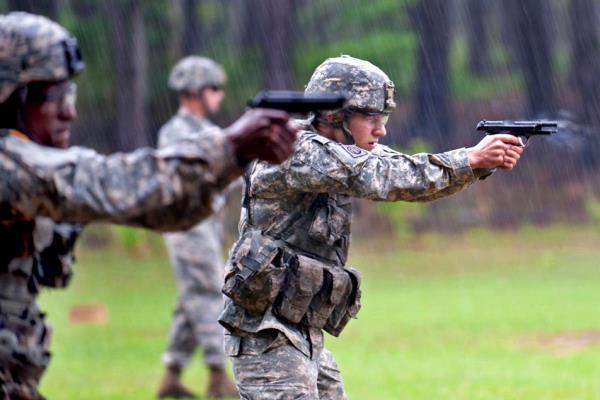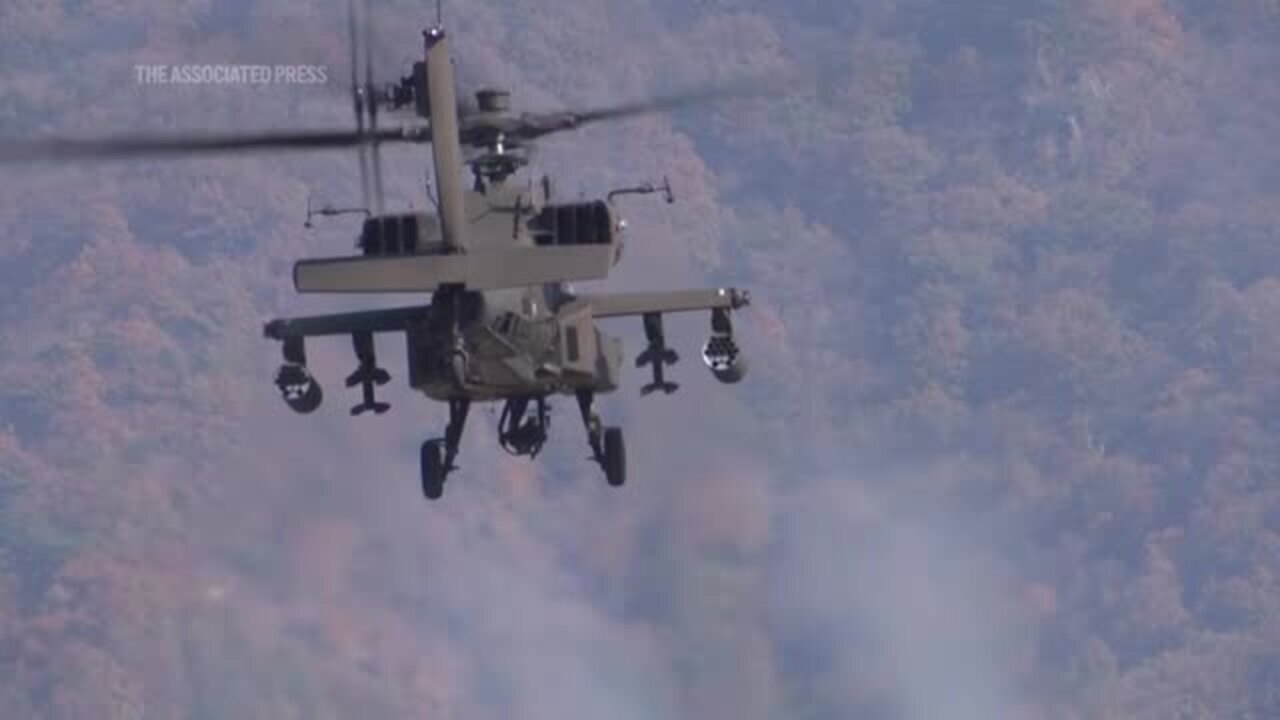The Army's Modular Handgun System will include special ammunition such as jacketed hollow-points, but as of now the service has no plans to allow combat units to use the more effective ammo in the current M9 9mm pistol.
A recent legal decision that relaxed the policy restricting the military's use of bullets that expand or fragment inside the human body comes as Army weapons officials are preparing to launch a competition to replace the M9.
"We were always going to have special-purpose ammunition involved in the MHS competition, from the beginning," according to Matt Walker, deputy of the Lethality Branch at the Army's Maneuver Center of Excellence at Fort Benning, Ga.
The decision means that "we will not limit the commander's ability to decide what type of ammunition he needs to make his unit as combat-effective as it can be," Walker said.
Gun makers that participate in the upcoming XM17 MHS competition will be required to submit their gun along with a single type of special-purpose ammunition of their choosing, Army officials said. Each vendor's gun and ammo will be tested as a system.
"This is just a piece of the puzzle of making soldiers more capable on the battlefield," Walker said. "If I give you a better bullet, we increase your combat effectiveness."
What's unclear about the legal decision is why this more effective type of ammunition is being specifically tied to the MHS program, small arms experts said.
Special Forces Ammo
The service already has several special-purpose 9mm rounds in the inventory, including 147 grain jacketed hollow-points. It's authorized for special mission units such as the 75th Ranger Regiment as well as military-police units.
Right now, the Army plans to award an MHS contract to a single vendor by 2018. Until then, Walker said he knows of no plans to allow conventional combat units to use readily-available hollow-point ammo in the current M9 service pistol.
Walker said it was not his decision, but added that he didn't think the Beretta M9 "is optimized to shoot any of those types of rounds. It's optimized to shoot the M882," the U.S. military's standard full-metal jacket 9mm round, he said.
"Any other round you fire through it, there are system-level effects that can affect a whole series of issues" such as "reliability and how many rounds between having a malfunction."
That's only "technically correct," said Gabriele De Plano, vice president of military marketing and sales for Beretta USA.
"The M9 design is owned by the Army and their specifications are to the M882 round," De Plano said. "From our experience, our pistol works extremely well with all types of jacketed hollow-points and other ammo available to the law enforcement and civilian market."
Walker did concede that the M9 "can cycle those rounds. That is correct."
On the Special Operations side, Operational Detachment Alpha units in Army Special Forces use hollow point ammo in their M9s as well as some elements of the Ranger Regiment, according to a source familiar with these units.
The Pentagon's devotion to full-metal jacket, or ball ammunition, is the result of a 116-year-old guideline in the 1899 Hague Convention that prohibits combat units from using of bullets that "expand or flatten easily" inside the human body.
The declaration was ratified by all major powers, except the United States, but the Pentagon has used it as the legal standard to rule out any ammunition other than ball for use in sidearms.
Last year, a request from the International Red Cross prompted many countries to examine the different types of ammunition being used on the battlefield, Walker said.
"That went through various international courts and came to the United States for an answer," Walker said. "The decision from the highest levels of our judicial side said 'commanders on the battlefield have the authorization to utilize assets available for mission accomplishment when required.'"
In addition to looking at new types of ammunition, one of the major goals of the MHS effort is to adopt a pistol chambered for a more potent round than the current 9mm, weapons officials said. The U.S. military replaced the .45 caliber 1911 pistol with the M9 in 1985 and began using the 9mm NATO round at that time.
9mm Not Powerful Enough
Soldiers who have served in Iraq and Afghanistan have complained that the 9mm round is not powerful enough to be effective in combat, Army officials said.
But experts from the law-enforcement and competitive shooting worlds have argued that tactical pistol ammunition - no matter the caliber -- depends on proper shot placement to be effective at stopping a determined adversary.
The Army began working with the small arms industry on MHS in early 2013, but the effort has been in the works for more than five years. If successful, it would result in the Defense Department buying more than 400,000 new pistols during a period of significant defense-spending reductions.
MHS is set to cost at least $350 million and potentially millions more if it results in the selection of a more potent pistol caliber, sources said.
"We are tasked with providing effective weapons systems to the user community," said Maj. Michael Martin, assistant product manager for Handgun and Subcompacts.
"If you can provide a better ammunition, you have therefore increased the effectiveness of the warfighter," he said.
-- Matthew Cox can be reached Matthew.Cox@military.com




























